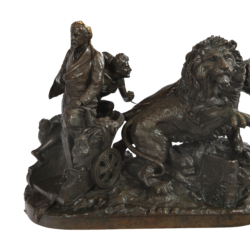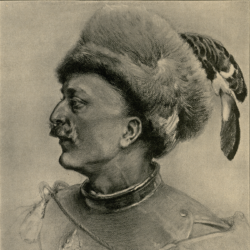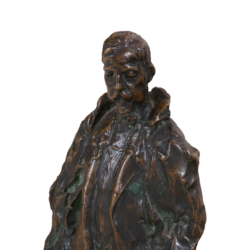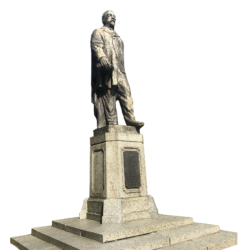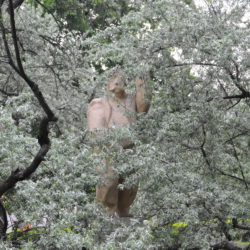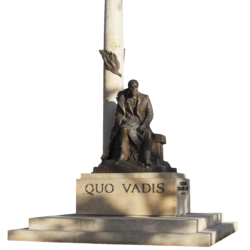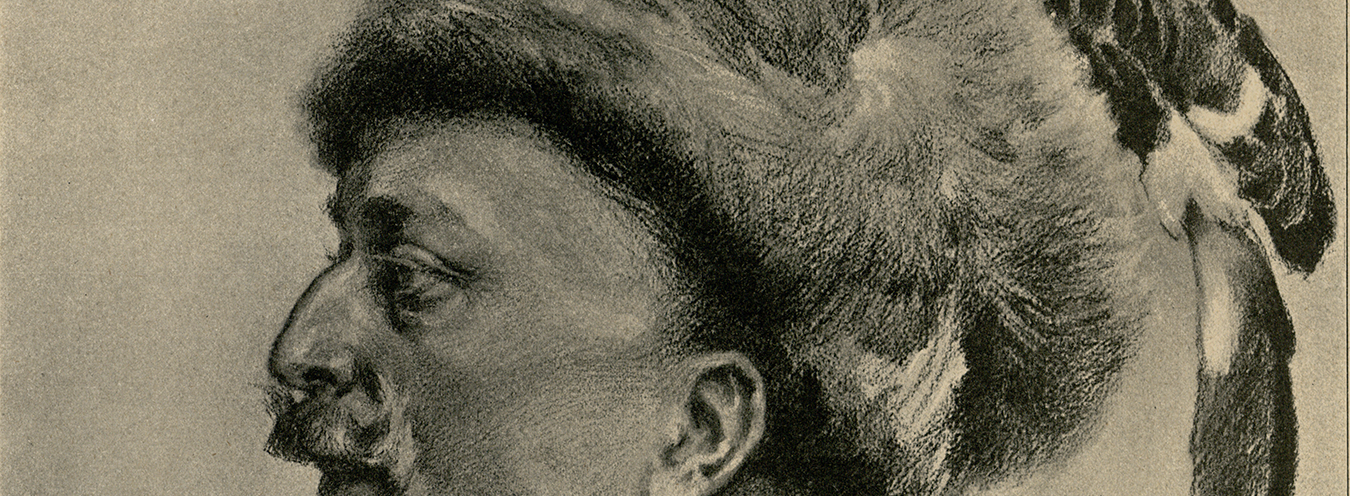
An anegdote about Cymbarewicz
Owing to the position I held, I had the honor of giving a tour of Warsaw to Anastas Mikoyan, First Deputy Chairman of the Soviet Union’s Council of Ministers, during his official visit to Poland. The distinguished guest was deeply impressed by the fast rate of the post-war reconstruction of our capital city. At one point, however, he asked me why Warsaw did not seem to have a Henryk Sienkiewicz monument. It took me by surprise, and I did not really know what to answer.
“We just cannot afford it yet,” I ventured. “Given time, we will take care of it as well.”
“He was a great Polish patriot and deserves a tribute,” declared Mikoyan. A minute later he enquired if there had been such a monument before the war, and, if so, where it had been located.
“I’m afraid I don’t know, I wasn’t in Warsaw at that time,” I confessed, ashamed of my ignorance.
Still, I was intrigued why our guest – born Armenian in the far Caucasus – had such an interest in Sienkiewicz, so I asked him about it.
“I happened to read the Trilogy and The Teutonic Knights [Krzyżacy] just before the Revolution. I liked both of them very much. Then I came across this novel for teenagers, In Desert and Wilderness. It’s a good book as well. And you, Comrade General,” he continued with a smile, “have you read the Trilogy?”[1]
Luckily, General Franciszek Cymbarewicz had read the Trilogy, first in Russian, then in Polish, since his father’s favorite books had been not only The History of the Communist Party of the Soviet Union (Bolsheviks) but also Sienkiewicz’s works. The conversation between Mikoyan and Cymbarewicz took place in the 1950s, when the latter was appointed Quartermaster General of the Polish People’s Army (also known as the Commander of the Support Area) by Konstantin Rokossovsky. Next, General Cymbarewicz and Chairman Mikoyan discussed the differences between the original text and the Russian translation, they also found they shared the same favorite Trilogy character (Kmicic [Kmita], not Wołodyjowski [Volodyovski]). Cymbarewicz’s reminiscence ends with a short recapitulation:
This exchange pleased me exceedingly. I was happy to hear that a venerable Communist and Soviet party-government official had read the works of my compatriot and appreciated their significance for the Polish nation at the time the country itself was divided between three different states. It proves that Comrade Mikoyan was not indifferent to our history, customs and culture, even if they were only rendered by the imagination of the author of the Trilogy and The Teutonic Knights.[2]
Born in 1917 in Mahilyow (today’s Belarus) to a Russified Polish family, General Franciszek Cymbarewicz served as a doctor in the Red Army before being transferred to the Polish People’s Army towards the end of WWII. When the war ended, he was one of a large group of army officers granted Polish citizenship. In the Stalinist era, Cymbarewicz climbed the military career ladder, rising to the ranks of Brigadier and Quartermaster General. His memoir, first published in 1984, is tellingly entitled Kmicicem nie zostałem (I am no Kmicic) and strewn with brief though most probably deliberate references to the author’s readerly encounters with Sienkiewicz. The Mikoyan anecdote appears to be a major episode in this respect. Yet another relevant motif would be the author’s relations with his beloved superior, the people-caring, justice-abiding, and ever-excelling Marshal Konstantin Rokossovsky, placed at the center of the account. After the Polish Thaw of 1956, which ended the Stalinist era, Cymbarewicz was relegated to obscure army positions. In 1984, already ten years into his retirement, Cymbarewicz was still active as the Chief Council Chairman of the Grunwald Patriotic Union, an association of national conservative hard-liner supporters. These facts could obviously throw some light on the purport of the General’s narrative and the reason for his references to Sienkiewicz. I am not going to elaborate on this thread here, but I would like to signal its importance since the point of the anecdote about Mikoyan is that it was actually a Soviet official[3] who pointed out the lack of a monument to a great Polish writer in the Polish capital and assumed that there must have been such a monument before the war. Moreover, since Cymbarewicz wrote his memoir thirty years after his conversation with Mikoyan, it is obvious that Warsaw still did not have any monument of Sienkiewicz as late as 1984.
Przypisy
- F. Cymbarewicz, Kmicicem nie zostałem [I am no Kmicic], Warsaw 1984, pp. 227–228; trans. J. M.
- Ibidem, pp. 228–229; trans. J. M.
- Incidentally, before WWI, Anastas Mikoyan studied at a seminary in Tbilisi, the city where a street and a school were already named after Sienkiewicz in 1916, the year of his death (Kurier Warszawski 1916, no. 358, p. 3).

